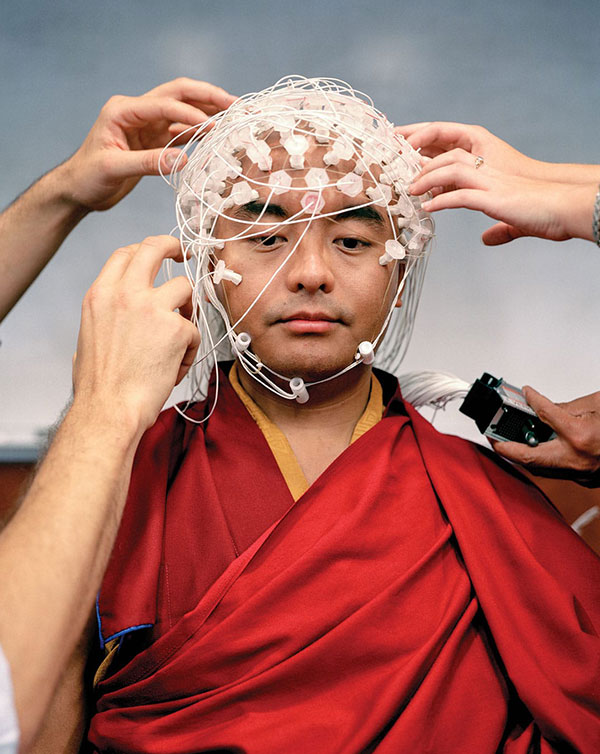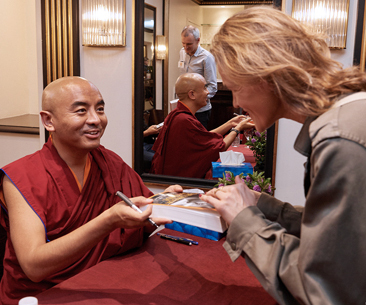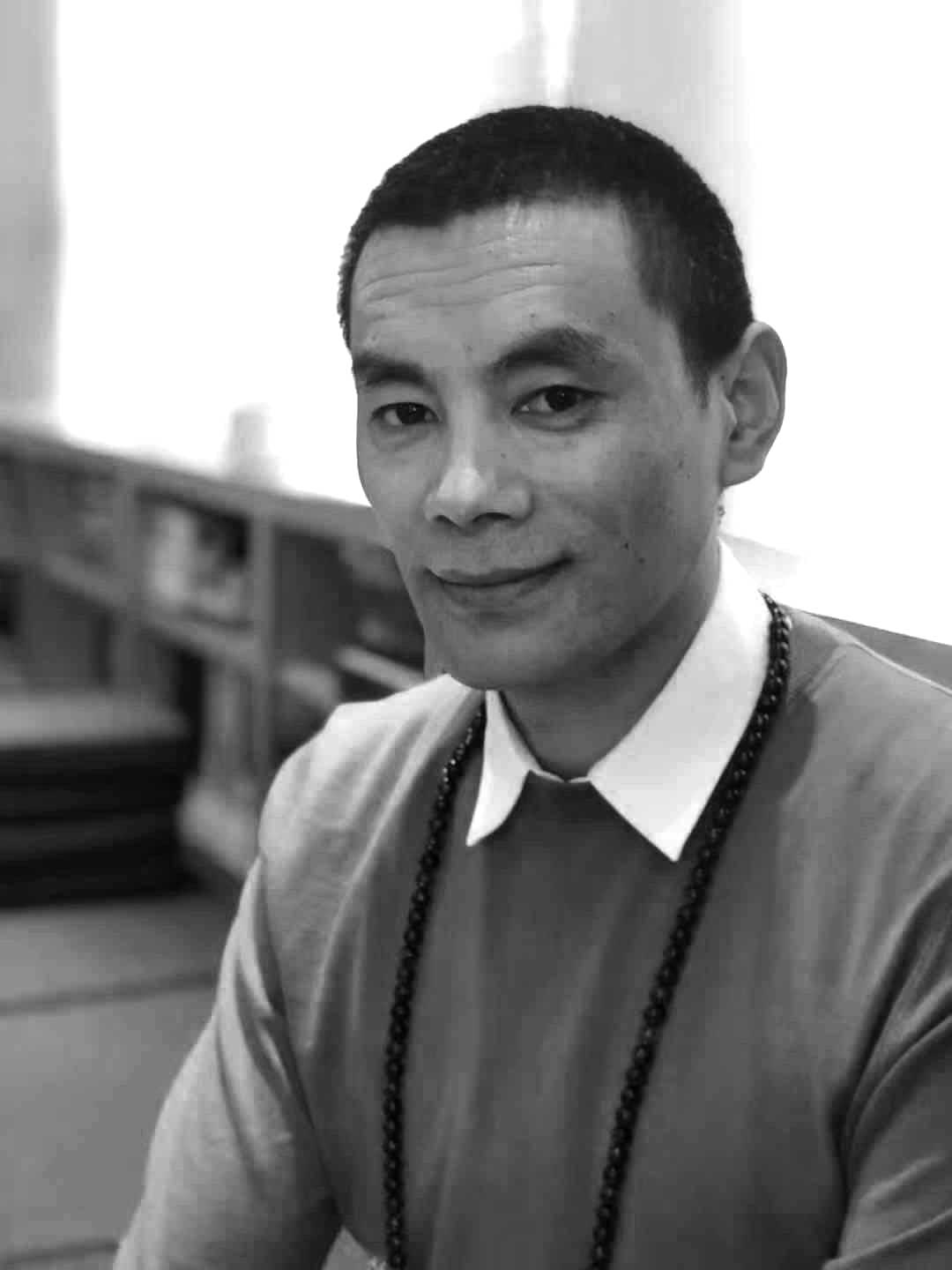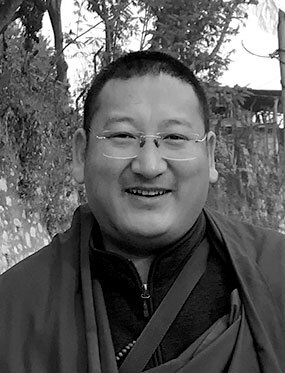Date/Time:
This event takes place June 6–8
(Asia-Pacific restream June 7-9), 2025.
Registration
Registration will close 1 hour in advance of the event. Full refunds will be given for cancellation requests up to 1 hour in advance of the event.
Who can attend this event?
This retreat is open to all.
Translation
Translation from English will be offered in Chinese, French, German, Indonesian, Japanese, Portuguese, Russian, Spanish and Thai.
When it comes to freeing ourselves from all the suffering in samsara, it cannot be attained through the power, miracles, or blessings that the Buddha possesses. Nor can we attain such nirvana with our wealth, power, fame, artistry, skill or what have you. We will be brought to the state of ultimate nirvana by the wisdom that recognizes the true nature of its object. — Mingyur Rinpoche, Stainless Prajna
This is the final retreat of Tergar’s 2024/25 transmission of the teachings from Mingyur Rinpoche’s meditation manual on Abhidharma, Stainless Prajna. Join Rinpoche as he guides us on a meditative exploration of “the four foundations of mindfulness,” a central teaching from the Buddhist tradition that shows how mindfulness can be applied to the full range of human experience, including our embodied physical experience, our thoughts and emotions, and even consciousness itself.
Even if you haven’t attended any prior events from this Abhidharma transmission, you’re warmly welcome to participate. The four foundations teachings are accessible to everyone, regardless of prior experience.
WHY SHOULD I ATTEND?
Mingyur Rinpoche has collected the different meditation practices throughout the Abhidharma literature and compiled them to create a meditation manual for modern-day practitioners. To have the opportunity to receive instructions on Abhidharma based on Mingyur Rinpoche’s new text, Stainless Prajna, is truly precious. Culminating our study of Rinpoche’s practice manual, this retreat delves into the final 11 chapters, exploring the four foundations of mindfulness — body, feelings, mind, and phenomena — and the inner transformation that arises from practice.
WHAT WILL I LEARN?
In this program, you will:
- learn about Vasubandhu’s Treasury of Abhidharma
- receive teachings on Rinpoche’s new text, Stainless Prajna
- receive practice guidance on the four foundations of mindfulness directly from Mingyur Rinpoche
WHAT IS INCLUDED IN THIS PROGRAM?
- Live teachings, Q&A, and practice sessions with Mingyur Rinpoche
Teaching sessions with Khenpo Gyurme (Asia/Australia/Europe/Oceania) and Lama Trinley (Americas) - Q&A sessions with Tergar guides
- Group meditation
REQUIREMENTS FOR PARTICIPATION:
This retreat is open to all.
Special note for students in Asia-Pacific time zones
Rinpoche’s teachings for this event will be restreamed during the morning/afternoon on June 7-9. This allows participants in Asia-Pacific time zones to join at a convenient time, whilst attending the rest of the schedule live.
Live interpretation will be provided in Chinese and Japanese during the restream.
"About Buddhist Psychology: Four Foundations of Mindfulness Retreat"
Thank you for your interest
This event happened on June 6. If you attended this event, you can access your resources by logging in.
We invite you to take a look at more events with Mingyur Rinpoche and Tergar Instructors.
About Mingyur Rinpoche

In his approach to teaching meditation, Mingyur Rinpoche integrates traditional Buddhist practice and philosophy with the current scientific understanding of the mind and mental health – making the practice of meditation relevant and accessible to students around the world.
Mingyur Rinpoche is a world-renowned meditation teacher with personal experience of anxiety and panic attacks, which he suffered from throughout his childhood and into his teenage years, when he learned to transform his panic through meditation. Born in Nepal in 1975, Mingyur Rinpoche began to study meditation as a young boy with his father, Tulku Urgyen Rinpoche, himself a well-respected Buddhist teacher. As a child he became interested in contemporary science through conversations with scientists who were visiting his father, and as he grew older he began to collaborate with neuroscientists and psychologists, including Richard Davidson and Antoine Lutz at the University of Wisconsin, on research projects that study the effects of meditation on the brain and the mind.

Mingyur Rinpoche’s first book, The Joy of Living: Unlocking the Secret and Science of Happiness, debuted on the New York Times bestseller list and has been translated into over twenty languages. His second book, Joyful Wisdom: Embracing Change and Finding Freedom, explores how difficult emotions and challenging life situations can be used as stepping stones to discover joy and freedom. In his most recent book, In Love with the World, Mingyur Rinpoche shares how his meditation practice sustained him when he left his monastery to wander through India and the powerfully transformative insights he gained from the near-death experience he had at the beginning of his journey. Mingyur Rinpoche recently appeared in the Netflix series The Mind, Explained, in an episode about the benefits of mindfulness.
As the head of the Tergar Meditation Community, Mingyur Rinpoche supports groups of students in more than thirty countries, leading workshops around the world for new and returning students every year.
About Lama Trinley

Lama Trinley has been the resident teacher at the Tergar Mingjue Phoenix Center since November, 2007. Lama Trinley began his education at Tergar Monastery, where he studied the rituals, prayers, and other traditional practices of the Tibetan Buddhist tradition. He entered the traditional three-year retreat when he was seventeen years old, after which he spent six years training in the monastic college of Tergar Monastery, where he taught for three years as assistant professor. His command of English and his humble and gentle demeanor make him easily accessible to newcomers and experienced meditators alike.
About Khenpo Gyurme Wangchen

Khenpo Gyurmé ordained as a monk at Tergar Monastery, Nepal, at the age of six. There he completed the primary monastic education, studying Tibetan language, Buddhist ritual, and philosophy. Following his training at Tergar Monastery, he was sent to Sherabling Monastery, the seat of Tai Situ Rinpoche, to complete nine years of formal Tibetan Buddhist College (shedra). After graduating from the shedra, he taught for three years and eventually was granted the title of Khenpo, a recognition of his scholarly accomplishment and contribution to monastic education. Khenpo Gyurmé has also studied meditation extensively with Tai Situ Rinpoche and Yongey Mingyur Rinpoche.
Khenpo Gyurmé is continuing his practice as the Principal of Education at Osel Ling Monastery in Nepal and has been teaching there for the past thirteen years. He is responsible for coordinating and overseeing more than 180 young monks' studies and teaching monastic and lay students, thus playing a very significant role in the development of the monastery. As the Abbot of the monastery, he is devoted to educational development and to supporting Buddhist practitioners along their path.
 EN
EN





